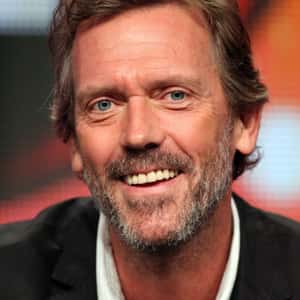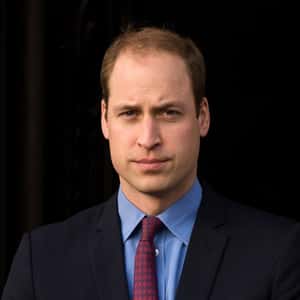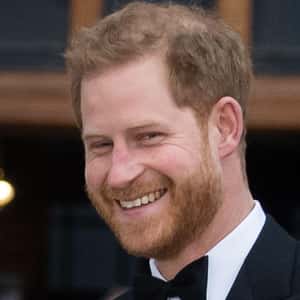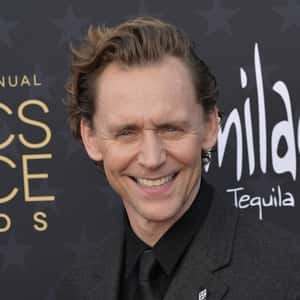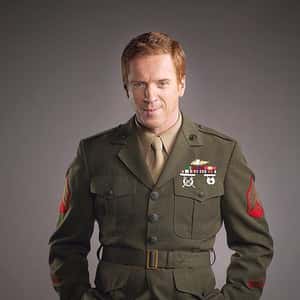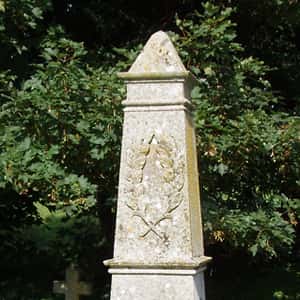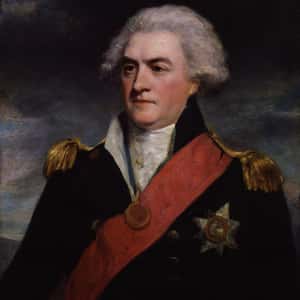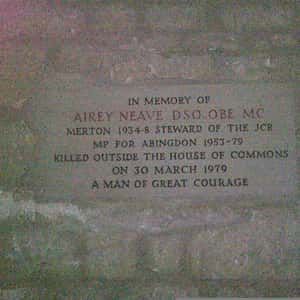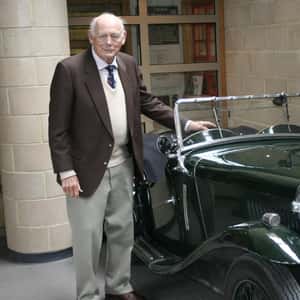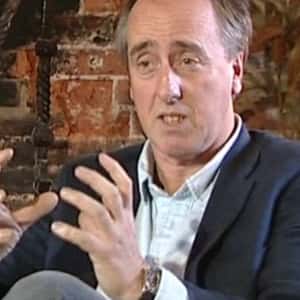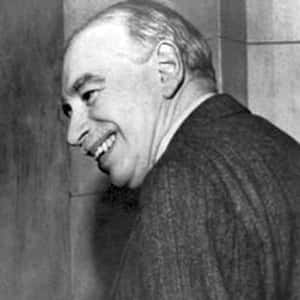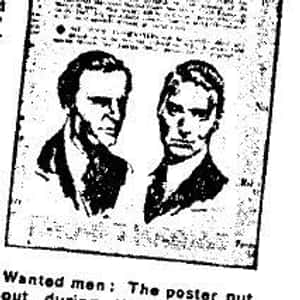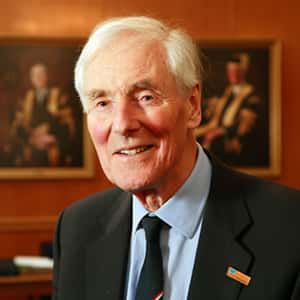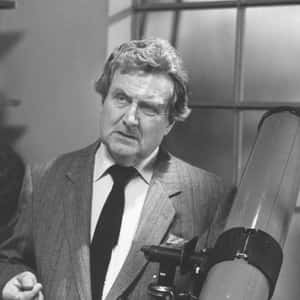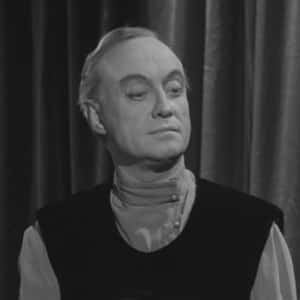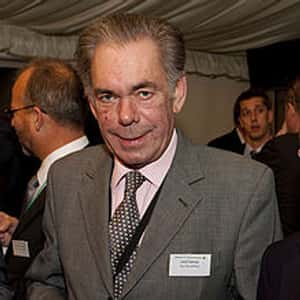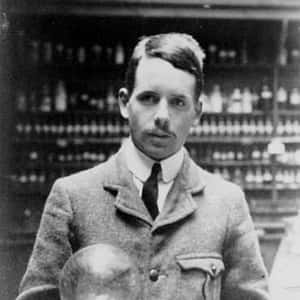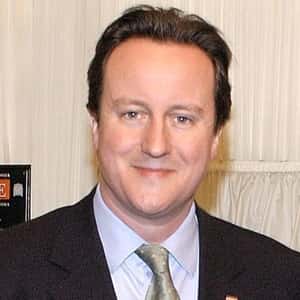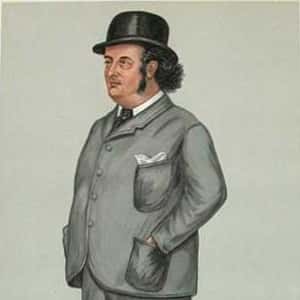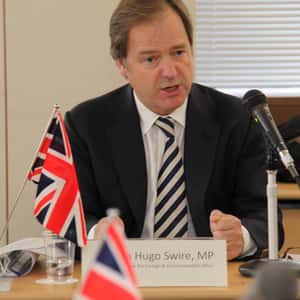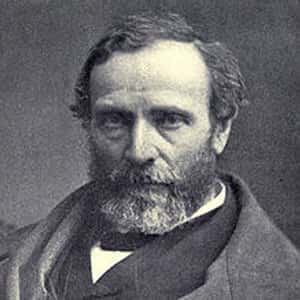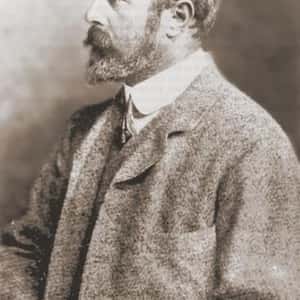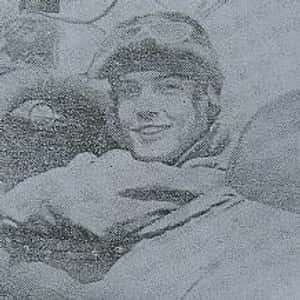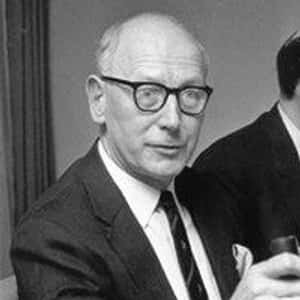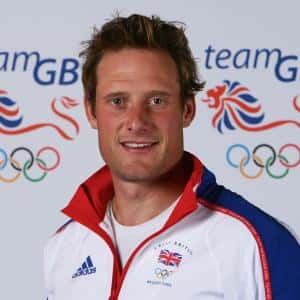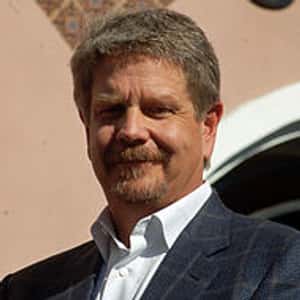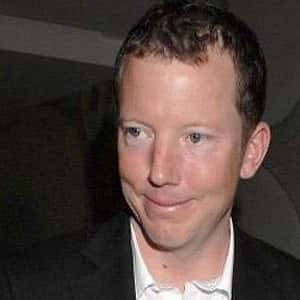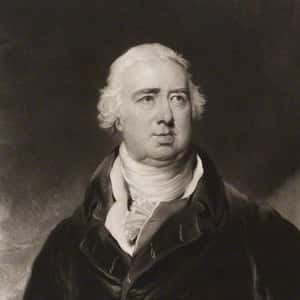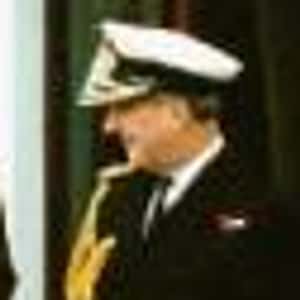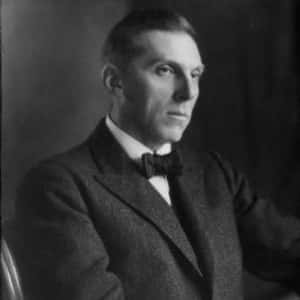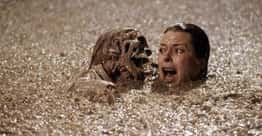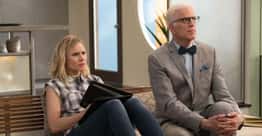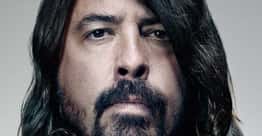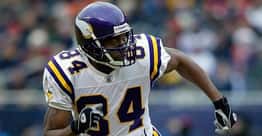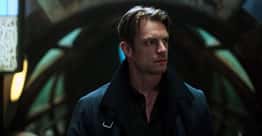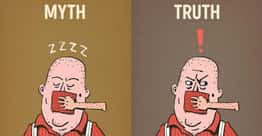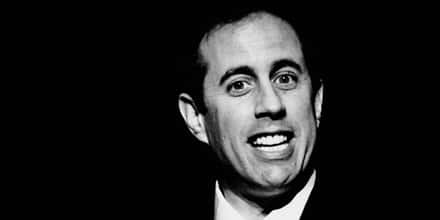Famous Eton College Alumni
Voting Rules
People on this list must have gone to Eton College and be of some renown.
- Television director, Television producer, MusicianHugh Laurie, born James Hugh Calum Laurie on June 11, 1959, in Oxford, England, has made a significant impact on the entertainment industry with his multifaceted talents. The son of an Olympic gold medal-winning rower, Laurie followed his father's athletic footsteps and rowed while attending Eton College and Cambridge University. However, it was during his time at Cambridge that Laurie discovered his passion for performance, joining the prestigious Cambridge Footlights drama club. This decision marked the beginning of a successful career in acting, music, directing, and writing. Laurie first gained recognition as part of a comedy duo with Stephen Fry, starring in popular British shows such as A Bit of Fry and Laurie and Jeeves and Wooster. His breakthrough in American television came with his role as the irascible Dr. Gregory House on the medical drama House M.D., a role which earned him two Golden Globe awards and several Emmy nominations. Beyond acting, Laurie has also showcased his musical talents as a blues musician, releasing two well-received albums, Let Them Talk and Didn't It Rain. Despite his success in Hollywood, Laurie has never strayed far from his British roots. He has starred in a number of notable British productions, including the critically acclaimed miniseries The Night Manager and the political satire Veep. Beyond screen, Laurie's talents extend to the literary world as well; he authored the novel The Gun Seller, a thriller that was met with positive reviews.More Hugh Laurie
- Dig Deeper...The 365+ Most Famous Geminis
- And Deeper...Guests of the Jay Leno Show
- #73 of 264 onThe Best (Male) Actors Working Today
- Born into the British royal family, William, Prince of Wales, has lived a life of immense privilege and profound duty. Born on June 21, 1982, to Charles, Prince of Wales, and Diana, Princess of Wales, his early years were marked by the glare of the media spotlight and the complex dynamics of his family's legacy. Despite the pressures of his birthright, William was noted for his affable demeanor and strong sense of responsibility from an early age. William's education was a blend of traditional schooling and royal tutelage. He attended Ludgrove School and later Eton College, where he demonstrated a keen interest in geography and history. Following Eton, he spent some time in Chile on a gap year, working on community service projects, before enrolling at the University of St. Andrews in Scotland. There, he obtained a degree in geography, further cementing his reputation as a dedicated student and conscientious individual. Beyond academics, William has shown a longstanding commitment to public service and philanthropy. He served in the Royal Air Force, undertaking rescue missions as a helicopter pilot, a role that showcased his bravery and dedication to serving his country. Additionally, he has been involved in numerous charitable initiatives, championing causes such as mental health awareness, conservation efforts, and support for disadvantaged youth. Throughout his life, William has managed to balance his royal duties with personal passions, carving out a unique path within the constraints of his royal heritage. His life story is a testament to his resilience, compassion, and commitment to serving both his country and humanity at large.
- Dig Deeper...A Day In The Life Of William And Kate
- And Deeper...345 Famous Cancer Celebrities
- #102 of 227 onThe Most Trustworthy Celebrities In The World
- SoldierPrince Harry, Duke of Sussex, (born Henry Charles Albert David; 15 September 1984) is a member of the British royal family. He is the younger son of Charles, Prince of Wales, and Diana, Princess of Wales, and is sixth in the line of succession to the British throne. Harry was educated at Wetherby Preparatory School, Ludgrove School and Eton College. He spent parts of his gap year in Australia and Lesotho. He then underwent officer training at the Royal Military Academy Sandhurst. He was commissioned as a cornet (i.e. second lieutenant) into the Blues and Royals, serving temporarily with his brother, Prince William, and completed his training as a troop leader. In 2007–08, he served for over ten weeks in Helmand, Afghanistan, but was pulled out after an Australian magazine revealed his presence there. He returned to Afghanistan for a 20-week deployment in 2012–13 with the Army Air Corps. He left the army in June 2015. Harry launched the Invictus Games in 2014 and remains patron of its foundation. He also gives patronage to several other organisations, including the HALO Trust, the London Marathon Charitable Trust, and Walking With The Wounded. On 19 May 2018, he married the American actress Meghan Markle. Hours before the wedding, his grandmother Queen Elizabeth II conferred on him the titles Duke of Sussex, Earl of Dumbarton and Baron Kilkeel, all in the Peerage of the United Kingdom. The couple's son, Archie Mountbatten-Windsor, was born on 6 May 2019.
- ActorTom Hiddleston, a name synonymous with versatility and charisma in the acting world, was born on February 9, 1981, in Westminster, London. A product of the Dragon School and Eton College, Hiddleston's passion for the performing arts led him to the prestigious Royal Academy of Dramatic Art (RADA), where he honed his craft and graduated in 2005. His early career saw him working extensively in theatre, most notably in productions such as Othello and Ivanov, earning him a Laurence Olivier Award nomination for Best Newcomer. Hiddleston's breakthrough came when he was cast in the role of Loki in the Marvel Cinematic Universe, making his first appearance in the 2011 film Thor. His portrayal of the complex anti-hero character was met with critical acclaim, leading to reprises in multiple sequels and spin-offs, including an eponymous television series. This role not only established his global reputation but also showcased his exceptional range, allowing him to transition seamlessly between high drama and comic relief. Beyond the MCU, Hiddleston's filmography is diverse, featuring period dramas like War Horse and Midnight in Paris, indie films like Only Lovers Left Alive, and biopics like I Saw the Light, where he played country music legend Hank Williams. In addition to his screen work, Hiddleston has made significant contributions to television, earning a Golden Globe for his leading role in The Night Manager. A multi-talented performer, Tom Hiddleston continues to captivate audiences worldwide with his dynamic portrayals and commitment to his craft.
- Film Producer, ActorDamian Watcyn Lewis (born 11 February 1971) is an English actor and producer. He played U.S. Army Major Richard Winters in the HBO miniseries Band of Brothers, which earned him a Golden Globe nomination, and also portrayed U.S. Marine Sergeant Nicholas Brody in the Showtime series Homeland (which earned him a Primetime Emmy Award and a Golden Globe Award). His performance as King Henry VIII in Wolf Hall earned him his third Primetime Emmy nomination and fourth Golden Globe nomination. He currently plays Bobby Axelrod in the Showtime series Billions (2016–present), and portrays actor Steve McQueen in Once Upon a Time in Hollywood (2019) directed by Quentin Tarantino.More Damian Lewis
- #197 of 264 onThe Best (Male) Actors Working Today
- #505 of 574 onThe Best Actors In Film History
- #74 of 85 onThe Top Casting Choices For The Next James Bond Actor
- Journalist, Novelist, AuthorIan Lancaster Fleming (28 May 1908 – 12 August 1964) was an English author, journalist and naval intelligence officer who is best known for his James Bond series of spy novels. Fleming came from a wealthy family connected to the merchant bank Robert Fleming & Co., and his father was the Member of Parliament for Henley from 1910 until his death on the Western Front in 1917. Educated at Eton, Sandhurst and, briefly, the universities of Munich and Geneva, Fleming moved through several jobs before he started writing. While working for Britain's Naval Intelligence Division during the Second World War, Fleming was involved in planning Operation Goldeneye and in the planning and oversight of two intelligence units, 30 Assault Unit and T-Force. His wartime service and his career as a journalist provided much of the background, detail and depth of the James Bond novels. Fleming wrote his first Bond novel, Casino Royale, in 1952. It was a success, with three print runs being commissioned to cope with the demand. Eleven Bond novels and two collections of short stories followed between 1953 and 1966. The novels revolve around James Bond, an officer in the Secret Intelligence Service, commonly known as MI6. Bond is also known by his code number, 007, and was a commander in the Royal Naval Reserve. The Bond stories rank among the best-selling series of fictional books of all time, having sold over 100 million copies worldwide. Fleming also wrote the children's story Chitty-Chitty-Bang-Bang and two works of non-fiction. In 2008, The Times ranked Fleming 14th on its list of "The 50 greatest British writers since 1945". Fleming was married to Ann Charteris, who was divorced from the second Viscount Rothermere because of her affair with the author. Fleming and Charteris had a son, Caspar. Fleming was a heavy smoker and drinker for most of his life and succumbed to heart disease in 1964 at the age of 56. Two of his James Bond books were published posthumously; other writers have since produced Bond novels. Fleming's creation has appeared in film twenty-six times, portrayed by seven actors.More Ian Fleming
- Dig Deeper...The Best James Bond Books
- And Deeper...The 365+ Most Famous Geminis
- #160 of 508 onThe 500+ Best Writers of All Time
Adam Haldane-Duncan, 2nd Earl of Camperdown
Adam Haldane-Duncan, 2nd Earl of Camperdown (25 March 1812 – 30 January 1867), styled Viscount Duncan between 1831 and 1859, was a British nobleman and politician.- Politician, Soldier, BarristerAirey Middleton Sheffield Neave, (23 January 1916 – 30 March 1979) was a British soldier, lawyer and Member of Parliament. During World War II he was the first British prisoner-of-war to succeed in escaping from Oflag IV-C at Colditz Castle, and later worked for MI9. After the war he served with the International Military Tribunal at the Nuremberg Trials. He later became Tory Member of Parliament for Abingdon. Neave was assassinated in 1979 in a car bomb attack at the House of Commons. The Irish National Liberation Army claimed responsibility.
- Edward John Barrington Douglas-Scott-Montagu, 3rd Baron Montagu of Beaulieu (20 October 1926 – 31 August 2015), was an English Conservative politician well known in Great Britain for founding the National Motor Museum, as well as for a pivotal cause célèbre in British gay history following his 1954 conviction and imprisonment for homosexual sex, a charge he denied.
Adam Nicolson
Adam Nicolson, 5th Baron Carnock, FRSL, FSA (born 12 September 1957) is an English author who has written about history, landscape, great literature and the sea. He is noted for his books Sea Room (about the Shiant Isles, a group of uninhabited islands in the Hebrides); God's Secretaries: The Making of the King James Bible; The Mighty Dead (US title:Why Homer Matters) exploring the epic Greek poems; and The Seabird's Cry about the disaster afflicting the world's seabirds.- Politician, Investor, EconomistJohn Maynard Keynes, 1st Baron Keynes ( KAYNZ; 5 June 1883 – 21 April 1946), was a British economist, trained mathematician, whose ideas fundamentally changed the theory and practice of macroeconomics and the economic policies of governments. He built on and greatly refined earlier work on the causes of business cycles, and was one of the most influential economists of the 20th century. Widely considered the founder of modern macroeconomics, his ideas are the basis for the school of thought known as Keynesian economics, and its various offshoots.During the Great Depression of the 1930s, Keynes spearheaded a revolution in economic thinking, challenging the ideas of neoclassical economics that held that free markets would, in the short to medium term, automatically provide full employment, as long as workers were flexible in their wage demands. He argued that aggregate demand (total spending in the economy) determined the overall level of economic activity, and that inadequate aggregate demand could lead to prolonged periods of high unemployment. Keynes advocated the use of fiscal and monetary policies to mitigate the adverse effects of economic recessions and depressions. He detailed these ideas in his magnum opus, The General Theory of Employment, Interest and Money, published in 1936. In the mid to late-1930s, leading Western economies adopted Keynes's policy recommendations. Almost all capitalist governments had done so by the end of the two decades following Keynes's death in 1946. As a leader of the British delegation, Keynes participated in the design of the international economic institutions established after the end of World War II but was overruled by the American delegation on several aspects. Keynes's influence started to wane in the 1970s, partly as a result of the stagflation that plagued the Anglo-American economies during that decade, and partly because of criticism of Keynesian policies by Milton Friedman and other monetarists, who disputed the ability of government to favorably regulate the business cycle with fiscal policy. However, the advent of the global financial crisis of 2007–2008 sparked a resurgence in Keynesian thought. Keynesian economics provided the theoretical underpinning for economic policies undertaken in response to the crisis by President Barack Obama of the United States, Prime Minister Gordon Brown of the United Kingdom, and other heads of governments.When Time magazine included Keynes among its Most Important People of the Century in 1999, it stated that "his radical idea that governments should spend money they don't have may have saved capitalism." The Economist has described Keynes as "Britain's most famous 20th-century economist." In addition to being an economist, Keynes was also a civil servant, a director of the Bank of England, and a part of the Bloomsbury Group of intellectuals.More John Maynard Keynes
- Dig Deeper...The 365+ Most Famous Geminis
- #374 of 752 onThe Greatest Minds of All Time
- #1149 of 3,183 onThe Most Influential People Of All Time
- SpyGuy Francis de Moncy Burgess (16 April 1911 – 30 August 1963) was a British diplomat and Soviet agent, belonging to the Cambridge Five spy ring that operated from the mid-1930s to the early years of the Cold War. His defection in 1951 to the Soviet Union, with his fellow spy, Donald Maclean, led to a serious breach in Anglo-American intelligence co-operation, and caused long-lasting disruption and demoralisation in Britain's foreign and diplomatic services. Born into a wealthy middle-class family, Burgess was educated at Eton College, the Royal Naval College, Dartmouth and Trinity College, Cambridge. An assiduous networker, he embraced left-wing politics at Cambridge and joined the Communist Party of Great Britain. He was recruited by Soviet intelligence in 1935, on the recommendation of the future double agent Kim Philby. After leaving Cambridge, Burgess worked for the BBC as a producer, briefly interrupted by a short period as a full-time MI6 intelligence officer, before joining the Foreign Office in 1944. At the Foreign Office, Burgess acted as a confidential secretary to Hector McNeil, the deputy to Ernest Bevin, the Foreign Secretary. This post gave Burgess access to secret information on all aspects of Britain's foreign policy during the critical post-1945 period, and it is estimated that he passed thousands of documents to his Soviet controllers. In 1950, he was appointed second secretary to the British Embassy in Washington, a post from which he was sent home after repeated misbehaviour. Although not at this stage under suspicion, Burgess nevertheless accompanied Maclean when the latter, on the point of being unmasked, fled to Moscow in May 1951. Burgess's whereabouts were unknown in the West until 1956, when he appeared with Maclean at a brief press conference in Moscow, claiming that his motive had been to improve Soviet-West relations. He never left the Soviet Union; he was often visited by friends and journalists from Britain, most of whom reported on a lonely and empty existence. He remained unrepentant to the end of his life, rejecting the notion that his earlier activities represented treason. He was well provided for materially, but as a result of his lifestyle his health deteriorated, and he died in 1963. Experts have found it difficult to assess the extent of damage caused by Burgess's espionage activities, but consider that the disruption in Anglo-American relations caused by his defection was perhaps of greater value to the Soviets than any information he provided. Burgess's life has frequently been fictionalised, and dramatised in productions for screen and stage.
Adrian Cadbury
Sir George Adrian Hayhurst Cadbury (15 April 1929 – 3 September 2015) was Chairman of Cadbury and Cadbury Schweppes for 24 years, and a British Olympic rower. He was a pioneer in raising the awareness and stimulating the debate on corporate governance and produced the Cadbury Report, a code of best practice which served as a basis for reform of corporate governance around the world.Patrick Macnee
Television producer, Actor, Voice actingDaniel Patrick Macnee (6 February 1922 – 25 June 2015) was a British-American film and television actor. He played the role of secret agent John Steed in the British television series The Avengers.- ActorJohn Cabell "Bunny" Breckinridge (August 6, 1903 – November 5, 1996) was an American actor and drag queen, best known for his role as "The Ruler" in Ed Wood's film Plan 9 from Outer Space, his only film appearance.
Adrian Palmer, 4th Baron Palmer
Adrian Bailie Nottage Palmer, 4th Baron Palmer (born (1951-10-08)8 October 1951) is an aristocrat and landowner in Scotland. Lord Palmer succeeded his uncle in the peerage in 1990, and is now one of the ninety hereditary peers elected to remain in the House of Lords after the passing of the House of Lords Act 1999; he sits as a crossbencher.- Physicist, EngineerHenry Gwyn Jeffreys Moseley (; 23 November 1887 – 10 August 1915) was an English physicist, whose contribution to the science of physics was the justification from physical laws of the previous empirical and chemical concept of the atomic number. This stemmed from his development of Moseley's law in X-ray spectra. Moseley's law advanced atomic physics, nuclear physics and quantum physics by providing the first experimental evidence in favour of Niels Bohr's theory, aside from the hydrogen atom spectrum which the Bohr theory was designed to reproduce. That theory refined Ernest Rutherford's and Antonius van den Broek's model, which proposed that the atom contains in its nucleus a number of positive nuclear charges that is equal to its (atomic) number in the periodic table. This remains the accepted model today. When World War I broke out in Western Europe, Moseley left his research work at the University of Oxford behind to volunteer for the Royal Engineers of the British Army. Moseley was assigned to the force of British Empire soldiers that invaded the region of Gallipoli, Turkey, in April 1915, as a telecommunications officer. Moseley was shot and killed during the Battle of Gallipoli on 10 August 1915, at the age of 27. Experts have speculated that Moseley could otherwise have been awarded the Nobel Prize in Physics in 1916. As a consequence, the British government instituted new policies for eligibility for combat duty.
- Spokesperson, Editor, PoliticianDavid William Donald Cameron (born 9 October 1966) is a British politician who served as Prime Minister of the United Kingdom from 2010 to 2016. He was the Member of Parliament (MP) for Witney from 2001 to 2016 and Leader of the Conservative Party from 2005 to 2016. He identifies as a one-nation conservative, and has been associated with both economically liberal and socially liberal policies. Born in London to an upper-middle-class family, Cameron was educated at Heatherdown School, Eton College, and Brasenose College, Oxford. From 1988 to 1993 he worked at the Conservative Research Department, assisting the Conservative Prime Minister John Major, before leaving politics to work for Carlton Communications in 1994. Becoming an MP in 2001, he served in the opposition shadow cabinet under Conservative leader Michael Howard, and succeeded Howard in 2005. Cameron sought to rebrand the Conservatives, embracing an increasingly socially liberal position. The 2010 general election led to Cameron becoming Prime Minister as the head of a coalition government with the Liberal Democrats – the youngest holder of the office since the 1810s. His premiership was marked by the ongoing effects of the late-2000s financial crisis; these involved a large deficit in government finances that his government sought to reduce through austerity measures. His administration introduced large-scale changes to welfare, immigration policy, education, and healthcare. It privatised the Royal Mail and some other state assets, and legalised same-sex marriage in Great Britain. Internationally, his government intervened militarily in the Libyan Civil War and later authorised the bombing of the Islamic State of Iraq and the Levant; domestically, his government oversaw the referendum on voting reform and Scottish independence referendum, both of which confirmed Cameron's favoured outcome. When the Conservatives secured an unexpected majority in the 2015 general election he remained as Prime Minister, this time leading a Conservative-only government. To fulfil a manifesto pledge, he introduced a referendum on the UK's continuing membership of the EU. Cameron supported continued membership; following the success of the Leave vote, he resigned to make way for a new Prime Minister and was succeeded by Theresa May.Cameron has been praised for modernising the Conservative Party and for decreasing the United Kingdom's national deficit. Conversely, he has been criticised by figures on both the left and right, and has been accused of elitism and political opportunism.More David Cameron
- Dig Deeper...Famous People Who Are Libra
- #88 of 193 on190+ Leo Moon Celebrities
- #21 of 96 onWho Is The Most Famous David Or Dave In The World?
- WriterOscar Browning OBE (17 January 1837 – 6 October 1923) was a British educationalist, historian and bon viveur, a well-known Cambridge personality during the late Victorian and Edwardian eras. An innovator in the early development of professional training for teachers, he served as principal of the Cambridge University Day Training College (CUDTC) from 1891 to 1909. He was also a prolific author of popular histories and other books. The son of a prosperous distiller, Browning was educated at Eton, and then King's College, Cambridge. On graduating in 1860 he returned to Eton as an assistant master. A vociferous and active opponent of the school's traditional curriculum and teaching methods, he introduced novel and progressive techniques to the classroom, to the general approval of his pupils but to the dismay of the Eton authorities. He was controversially dismissed from his post in 1875, ostensibly because of repeated disregard for school rules, but an underlying issue was disquiet arising from his lifestyle, particularly his close and affectionate relationships with boys under his care. Browning returned to King's, where he continued his individualistic approach to teaching, and rapidly established himself as a leading Cambridge personality. Again, his methods were far more popular with his students than with his colleagues. An avid social climber and self-promotionist, he cultivated a range of acquaintances in the social and political worlds – he stood unsuccessfully three times for Parliament – and published a number of books on English, European and world history. He also wrote on educational theory and produced a well-regarded biography of the writer George Eliot. Despite this output, he failed to gain scholastic recognition and was repeatedly overlooked for higher college posts and academic honours. However, his pioneering work in teacher education, particularly through his leadership of the CUDTC, was later recognised as a formative factor in the development of the university's present-day Department of Education. After his retirement in 1909 Browning moved to Rome and remained active as a writer until his death in 1923. Among his late works were two volumes of autobiography and further historical works, including a history of Italy. At the end of his life, having earlier been denied a knightood, he was appointed an Officer of the Order of the British Empire (OBE) for his services to education.
- Sir Hugo George William Swire (born 30 November 1959) is a British Conservative Party politician. He has been the Member of Parliament (MP) for East Devon since 2001. He has had several ministerial roles, most recently as Minister of State for the Foreign and Commonwealth Office, a role he held until July 2016.
- PoliticianSir Arthur Lawrence Hobhouse (15 February 1886 – 20 January 1965) was a long-serving English local government Liberal politician, who is best remembered as the architect of the system of National parks of England and Wales.
- Ernest William Lyons Holt or E. W. L. Holt (17 October 1864 – 10 June 1922) was an eminent English marine naturalist and biologist who specialized in ichthyology, the study of fish. His work helped lay a scientific foundation for the fishery management in Ireland, and together with William Spotswood Green, he strongly influenced the development of the Irish Fisheries in its early years.
- Arthur Percival Foley Rhys-Davids & Bar (26 September 1897 – 27 October 1917) was a British flying ace during the First World War. Rhys-Davids was born in 1897 to a distinguished family. His father was a professional academic and his mother a prolific author, which afforded the young Rhys-Davids thorough schooling. He showed considerable potential in all subjects and was an excellent student. At the age of 14 Rhys-Davids joined Eton College as a King's Scholar. He gained his School Certificate in July 1913 with higher marks than any other student. In 1914 war had broken out and in mid-1916 Rhys-Davids applied for a commission in the Royal Flying Corps. On 28 August 1916 he reported for training. Rhys-Davids completed his training in the spring of 1917 and was assigned to No. 56 Squadron RFC on 7 March 1917. Rhys-Davids gained his first victory on 23 May 1917 and began a steady run of success. Only two days later he gained his fifth air victory and became an ace. It was during the Third Battle of Ypres (July–November 1917) that Rhys-Davids scored the majority of his successes, gaining 22 more victories by the time of his death. On 23 September Rhys-Davids shot down the German ace Werner Voss (48 victories), who was killed; and possibly also Carl Menckhoff (39 victories). By 11 October 1917, Rhys-Davids had shot down five more enemy aircraft for an official total of 27 aerial victories – 23 of them individual kills.Rhys-Davids had earned a reputation as a "fighter", and pursued enemy aircraft wherever and whenever he spotted them. On 27 October 1917 he pursued a group of German aircraft over Roeselare, Belgium. He was never seen or heard from again. Post-war analysis suggests Rhys-Davids may have been shot down by German ace Karl Gallwitz. Despite disappearing less than five miles from the crash site of Werner Voss, shot down by Rhys-Davids one month earlier, his remains have never been found.
- JournalistJeremy John Le Mesurier Wolfenden (26 June 1934, England – 28 December 1965) was a foreign correspondent and British spy at the height of the Cold War.
- Alastair Heathcote (born 18 August 1977 in Athens, Greece) is a British rower and Captain in the British Army. Heathcote is the eldest grandson and eventual heir of Sir Gilbert Simon Heathcote, 9th Baronet. He was educated at Eton College, Newcastle University and Oxford Brookes University. His father was an Old Etonian Gunner officer. His father later served as a diplomat at the British High Commission in Pakistan and later the head of security for an oil company. He was in Mustians house at Eton. He served as Captain of Boats at the school. His younger brother Nicholas is also a distinguished oarsman. He joined the army in 2001 and served in Bosnia (Operation Joint Endeavor in support of UNPROFOR) and Iraq (Operation Telic). He was selected for the Great Britain squad in 2006 and won a bronze medal in the eight at the Rowing World Cup in 2007 at Amsterdam and at the following 2007 Rowing World Championships in Munich. He was in the GB team (Men's 8) in the Beijing Olympics, where he won the silver medal. He coached at Latymer Upper School in West London until 2011.
- PoliticianJohn Wells may refer to:
- Nathaniel Philip Victor James Rothschild (born 12 July 1971) is a British-born financier who settled in Switzerland, and a member of the Rothschild family. He was co-chairman of Asia Resource Minerals PLC, a natural resources group that he helped create and that is listed on the London Stock Exchange. He was co-chairman of the hedge fund Atticus Capital from 1996 until its dissolution in 2009. He has a wide range of international business interests. He is the heir apparent to the title of Baron Rothschild, held by his father.
- Thomas Dundas, 1st Baron Dundas FRS (16 February 1741 – 14 June 1820), known as Sir Thomas Dundas, 2nd Baronet from 1781 to 1794, was a British politician who sat in the House of Commons from 1763 to 1794, after which he was raised to the peerage as Baron Dundas. He was responsible for commissioning the Charlotte Dundas, the world's "first practical steamboat".
- Admiral of the Fleet Sir David Benjamin Bathurst (born 27 May 1936) is a former Royal Navy officer. After training as a pilot and qualifying as a helicopter instructor, Bathurst commanded a Naval Air Squadron and then two frigates before achieving higher command in the Navy. He served as First Sea Lord and Chief of the Naval Staff from 1993 to 1995: in that capacity he advised the British Government on the deployment of Naval Support including Sea Harriers during the Bosnian War.
- Roger Cuthbert Quilter (1 November 1877 – 21 September 1953) was an English composer, known particularly for his songs.


